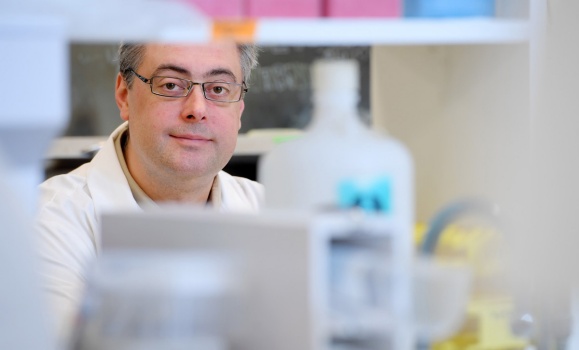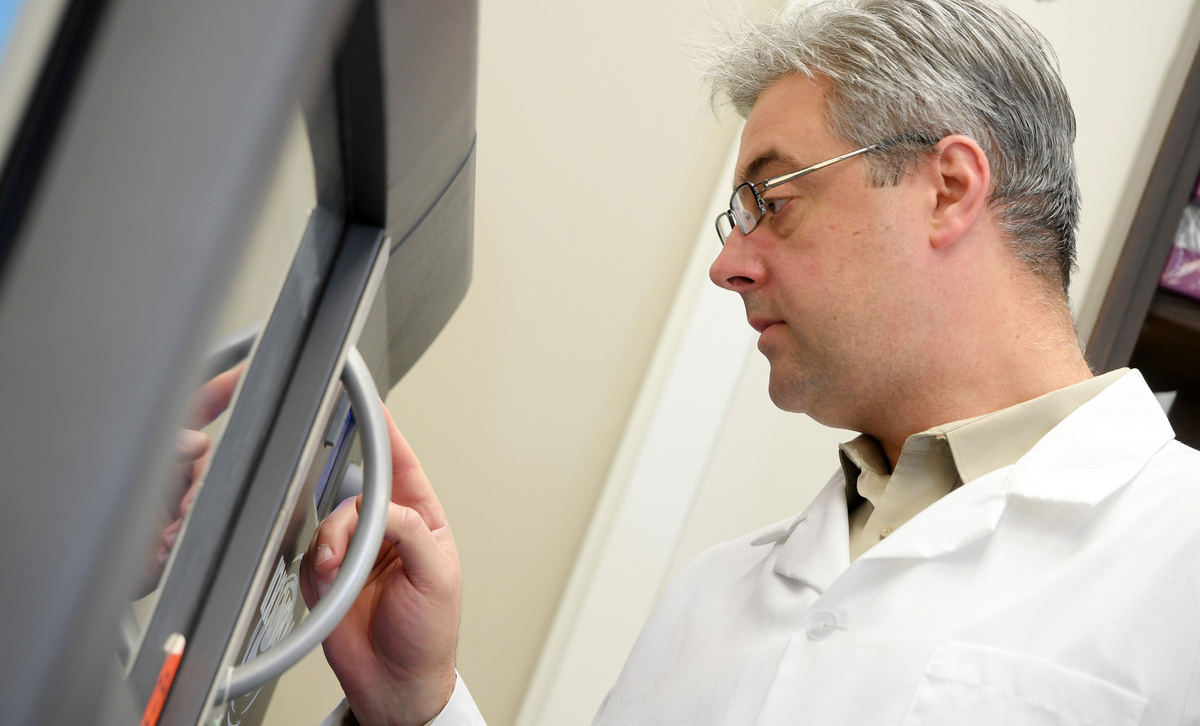News
» Go to news mainMolly Appeal supporting inflammation, infection & immunity research at Dal

Dalhousie Medical Research Foundation’s 2016-17 Molly Appeal is raising funds for important inflammation, infection and immunity research taking place at Dalhousie Medical School.
Donor gifts will purchase sophisticated cell-analysis equipment that more than 30 researchers will use to probe the complex workings of the immune system. A portion of the funds will be used to develop powerful software tools and expertise for analyzing the composition, activity and impact of the trillions of microbes that inhabit our bodies (known as the “microbiome”).
“We are just beginning to understand how much the immune system and the microbiome influence one another,” says Dr. Andrew Makrigiannis, Dalhousie’s new head of the Department of Microbiology & Immunology. “By understanding how each works and how they interact to undermine or protect our health, we can develop far more effective, targeted strategies for diagnosing, treating and preventing disease.”
Impact on diseases like Crohn's, cancers, HIV
Inflammation, infection and immunity are closely related and encompass a wide range of diseases. These include inflammatory autoimmune diseases like Crohn’s, rheumatoid arthritis and lupus, as well as immune deficiencies, allergies, cancer, and infectious diseases like influenza, HIV, pneumonia, Lyme disease and others. The common thread that ties them together is the immune system.
“Identifying our many different kinds of immune cells and understanding their roles is essential, whether we’re developing immune-boosting treatments for cancer and infections, or an immune-suppressing therapy for lupus,” says Dr. Makrigiannis.
“We’re thrilled this year’s Molly Appeal will help us bring a new flow cytometer to Dal, replacing an outdated machine with an advanced piece of equipment that will allow us to sort, count and tag individual immune cells and analyze what they’re doing in any given situation.”

Flow cytometry is the workhorse of immunology research. Demand for this equipment is increasing at the medical school, where facilities are not yet adequate to meet the growing needs.
“The FACSCelesta flow cytometer is much faster and allows more detailed analysis of more different kinds of immune cells at once than any of our current equipment,” Dr. Makrigiannis says. “This is especially important with the arrival of two new immunology researchers who rely heavily on flow cytometry.”
Expanding Dal's research capacity
Microbiome research is also expanding rapidly at Dalhousie, as more researchers explore the role of microbes in our bodies. “Our microbes outnumber our human cells and have profound impacts on our mental and physical health,” says Dr. Morgan Langille, director of Dalhousie’s Integrated Microbiome Resource.
“Analyzing all these bacteria and their genes requires enormous data-crunching and analysis capabilities. Funds from the Molly Appeal will allow us to develop the software tools we need to understand the microbiome and its potential as a key to personalized medicine and true healing.”
“Linking microbiome bioinformatics with immunology research positions Dalhousie at the leading edge of an emerging field,” says Dr. Makrigiannis. “We are grateful Dalhousie Medical Research Foundation is supporting this initiative through the 2016-17 Molly Appeal.”
Visit the Molly Appeal website to learn about how you can donate to the campaign as well as more information on Dal's inflamation, infection and immunity researchers.
Recent News
- Dalhousie’s first physician assistant cohort steps into Nova Scotia’s healthcare system
- Dalhousie med students explore pediatric care in Austria
- Dalhousie researchers shine at Discovery Awards with four top honours
- New $2M national study to uncover how biology, social factors shape MS outcomes
- Pathology EDIA Committee makes strides during 2024‑2025 year
- CCfV’s impact on vaccine innovation
- Unlocking the secrets of memory—with fruit flies
- Celebrating mobility research and the power of philanthropy
